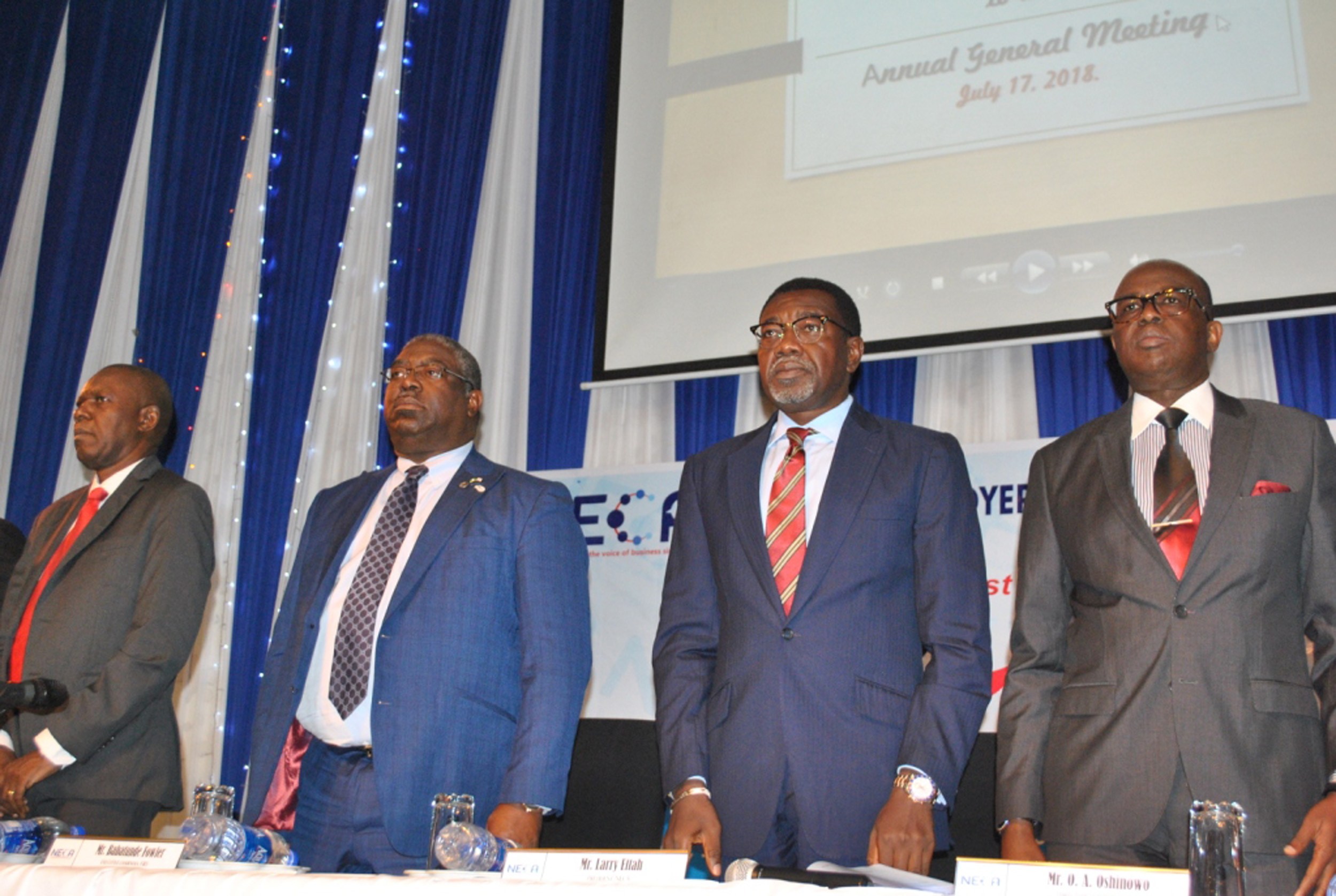Leadership of the Nigeria Employers’ Consultative Association (NECA), has raised fresh alarm on the impacts of sustained borrowing spree both by the Federal Government and states from the local money market to fund 2018 and 2019 budgets.
According to the group, the borrowings are crowding out credit to manufacturers and the real sector, thus fueling production freeze in the real sector of the economy.
NECA traced the current high cost of funds in the money market to the government’s borrowings spree.
The employers’ body feared that “The assumptions of the 2019 budget showed that government will borrow about N1.8 trillion to fund an estimated N1.9 trillion budget deficit, just as the Debt Management Office (DMO), had rolled out first quarter borrowing plan of the federal government indicating further from the domestic money market to fund 2018 budget in the first quarter of 2019”.
Explaining more, the Director-General of NECA, Mr. Timothy Olawale averred that “The 2019 budget has about N1.86 trillion deficit and predicated on revenues in the range of N7 trillion,” noting that “Both scenarios are threatened by disappointing revenue notwithstanding the upsurge in the price of crude, which naturally feeds into a wider deficit that will leave government with limited options than to borrow, thereby further shrinking available credit to the private sector”. While acknowledging government’s efforts in spite of the nation’s challenges in releasing capital for current expenditures, NECA boss noted that “We recognize the multifaceted challenges facing government and commend its effort at meeting the yearning of the organized private sector. However, there is the urgent need for a deliberate and not accidental policies aimed at channeling cheap credit to businesses, creating a favorable environment for enterprises to thrive and reduction of regulatory predatory tendencies.
“This will enable the private sector to create jobs and wealth for the teeming youths and provide opportunities for government to generate income.
Checks at several banks show that the rate of request for long term loans by the Organised Private Sector (OPS) dimmed since the second quarter of 2018 and has not shown any sign of getting better due to pressure from the government sector.









